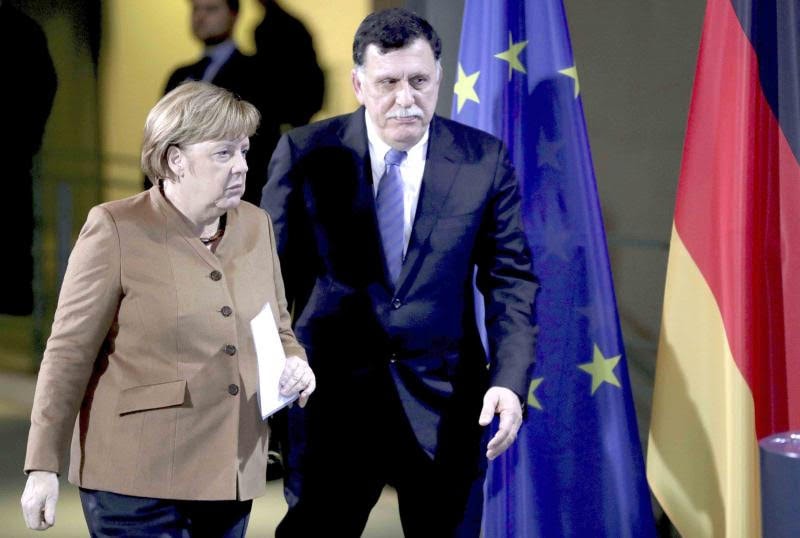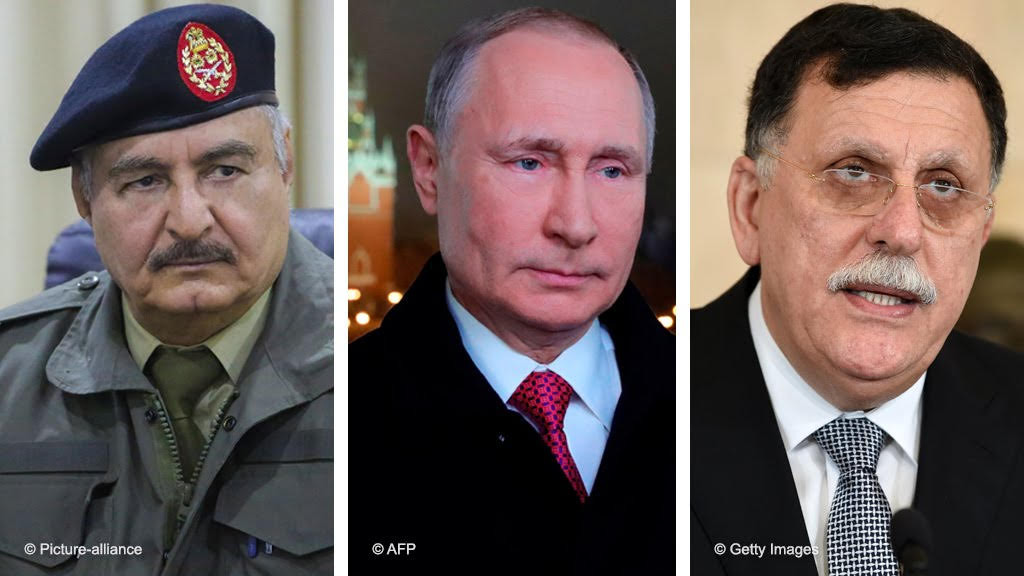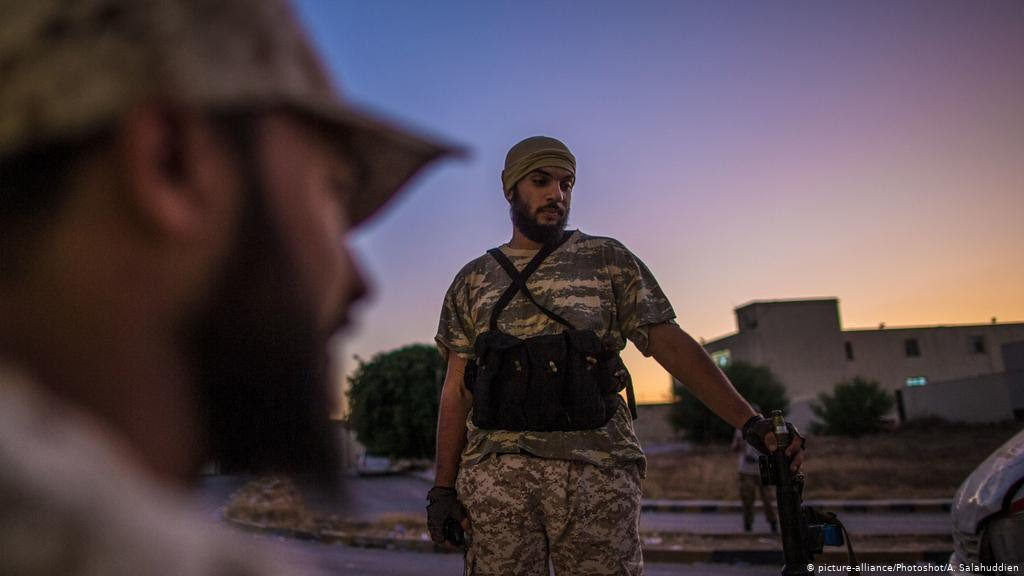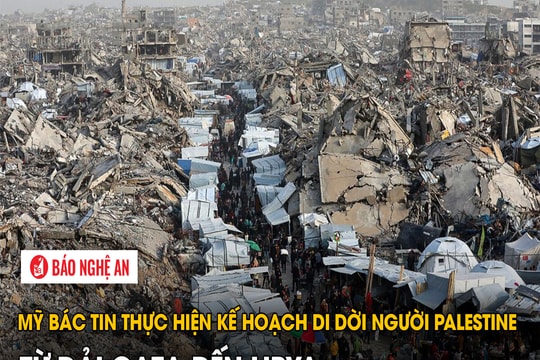Can Libya escape the crisis?
(Baonghean) - Since 2011, after the coup that overthrew leader Moamer Gadhafi, Libya has been engulfed in political division and escalating violence. Many diplomatic moves by various parties as well as major countries have been promoted, but none have brought about any significant results. Not to mention, the situation has become more complicated over the past year with the deeper involvement of Russia and Türkiye. Many opinions also believe that Libya - a geostrategic area - is gradually becoming a new chessboard in the Middle East after the Syrian crisis.
In such a context, the Berlin Summit on Libya took place yesterday, January 19 in Germany, with the participation of representatives of 11 countries, including many major countries such as the US, Russia, France, China, Türkiye..., is expected to find a new solution that can resolve the increasingly chaotic situation in Libya.
Determined to break the vicious cycle
It can be said that since 2018, the Berlin Summit held on January 19 is the first major event held to find a solution to the conflict in Libya that has lasted for many years. The conference is expected to be able to call on major countries with influence in the Middle East region to join their voices, actions and commitments not to continue to get involved in the conflict in Libya, by not providing weapons, troops or finance.
 |
| The Berlin conference on Libya represents the international community's efforts to resolve the conflict in this North African country. Photo: The ArabWeekly |
It should be recalled that since the 2011 coup, Libya has been deeply divided with two separate governments and armed forces coexisting. These are the Government of National Accord (GNA) recognized by the United Nations and the Libyan Eastern Army (LNA). Notably, each government has different sponsors and supporters. While the Government of National Accord (GNA) is supported by countries such as Türkiye and Qatar, the Libyan Eastern Army (LNA) is supported by Egypt and the United Arab Emirates (UAE), along with political support from several major countries such as Russia, the United States and France.
Libya is increasingly becoming a "piece of cake" for different forces to covet.
In the situation of one country, two governments, deep contradictions and conflicts, Libya is increasingly becoming a "piece of cake" for different forces to covet. Not only that, Libya is also gradually becoming a new battlefield in the Middle East for major countries - after the post-Syria battlefield has almost been divided. That is why the United Nations Special Envoy to Libya, Ghassan Salame, recently called on foreign countries to stop interfering in the conflict in Libya. And that, although Libya has called for help from foreign powers, it is these "international interventions that only deepen the division within this country". Therefore, Special Envoy Ghassan Salame especially called for an end to this vicious cycle! Therefore, the Berlin Summit on Libya also sought to strengthen the ceasefire in this country, with close supervision and practical effectiveness. However, whether or not a new agreement is reached at this conference, according to observers, the internal conflict in Libya is unlikely to be resolved soon. As evidence, just at the beginning of last week, delegations from the two rival governments in Libya held negotiations in Moscow to reach a ceasefire agreement, mediated by Russia and Turkey. Unfortunately, General Khalifa Haftar - head of the Libyan National Army (LNA) left Moscow without signing any ceasefire agreement to end 9 months of conflict in the capital Tripoli.
 |
| Russia is increasingly playing a role in Libya. Photo: Getty, AfP, Alliance |
Uneven benefits
Recently, it is not difficult for public opinion to recognize the special attention and continuous moves of the Russian and Turkish governments to increase their presence and role in Libya. Analysts believe that both Russia and Türkiye are hatching a grand plan in this new area in the Middle East. Simply because this will be a new chess game, where the US seems to be gradually reducing its presence. Meanwhile, Russia and Turkey seem to be together establishing a strategic combination rule like they did in Syria. And that, in that chess game, the US will continue to be an outsider.
Russia has begun a major push to increase its military presence in order to shape the ultimate outcome of the Libyan war.
It is also worth mentioning that the chaotic situation in Libya over the past year has become the perfect context for Russia to have a reason to intervene, filling the void left by the US and its allies. The latest manifestation is that after many years of supporting General Khalifa Haftar's forces in many aspects, Russia has begun to strongly promote its presence to shape the final outcome of the Libyan war. Recently, General Khalifa also captured the strategic coastal city of Sirte. This victory also means that Russia's assistance is increasingly evident in this country.
Meanwhile, Turkish President Recep Tayyip Erdogan recently shared with the media that the remaining work in Libya is up to Russian President Vladimir Putin. Is that not a message to the parties in Libya that Russia will play a leading role in finding peace for this country? This is probably a scenario that many countries in the region accept, when looking back at what Russia has done well in Syria in recent times. In the Libyan game, if Turkey seeks economic and resource benefits or "relies on" Russia to strengthen its voice, then Russia, if it continues to perform well with Libya, will increasingly consolidate its position in the region. Not to mention, an important member of NATO, Türkiye, is increasingly leaning towards Russia.
 |
| Libya has been mired in division and conflict since the 2011 coup. Photo: DW |
Meanwhile, the US representative at the Berlin Conference, Secretary of State Mike Pompeo, is said to continue to be "inferior" in Libya. He has also set out certain goals, such as maintaining a ceasefire, withdrawing all foreign forces, and returning Libya to a Libyan-led peace process. However, with a rather "weak" voice in Middle East issues, and a "difficult ally" like Türkiye, the US's proposals will have to wait for the attitudes of many parties. Especially when ally Ankara is determined to intervene in the conflict in this North African country. Therefore, it is clear that once the strategic calculations and interests of the parties are not evenly divided, the Libyan chessboard will remain tense and cannot end soon!


